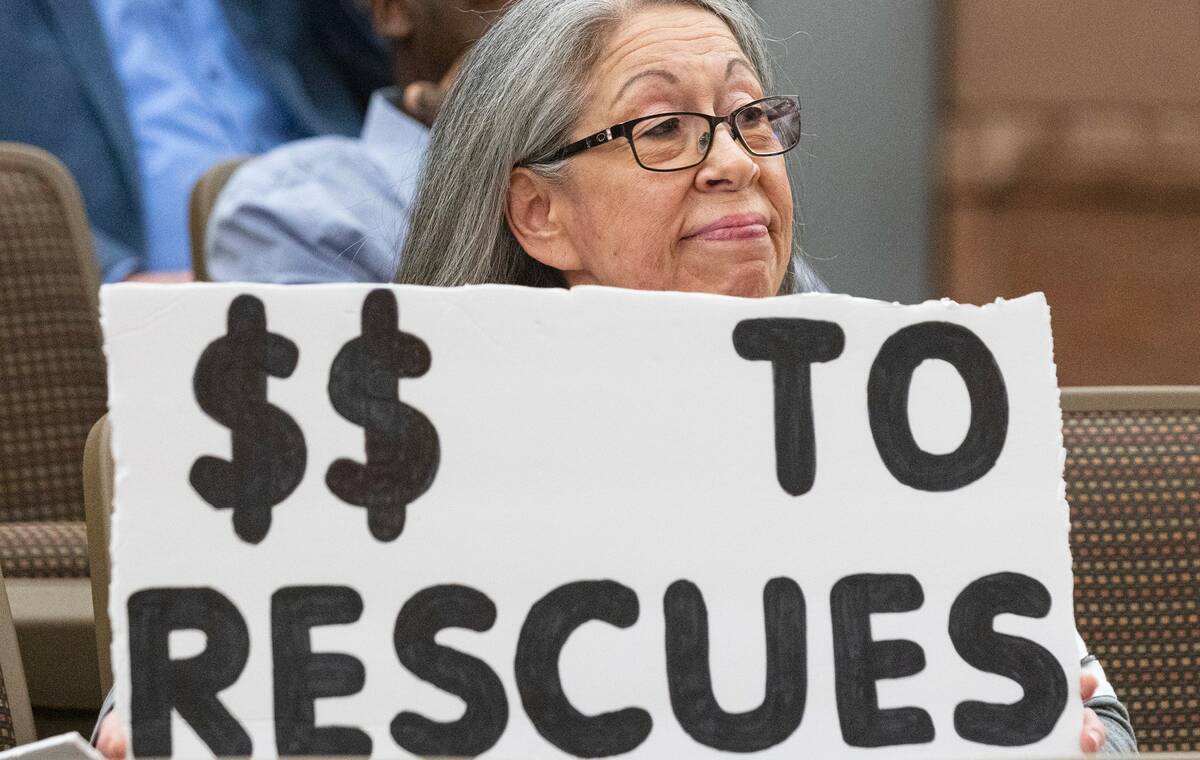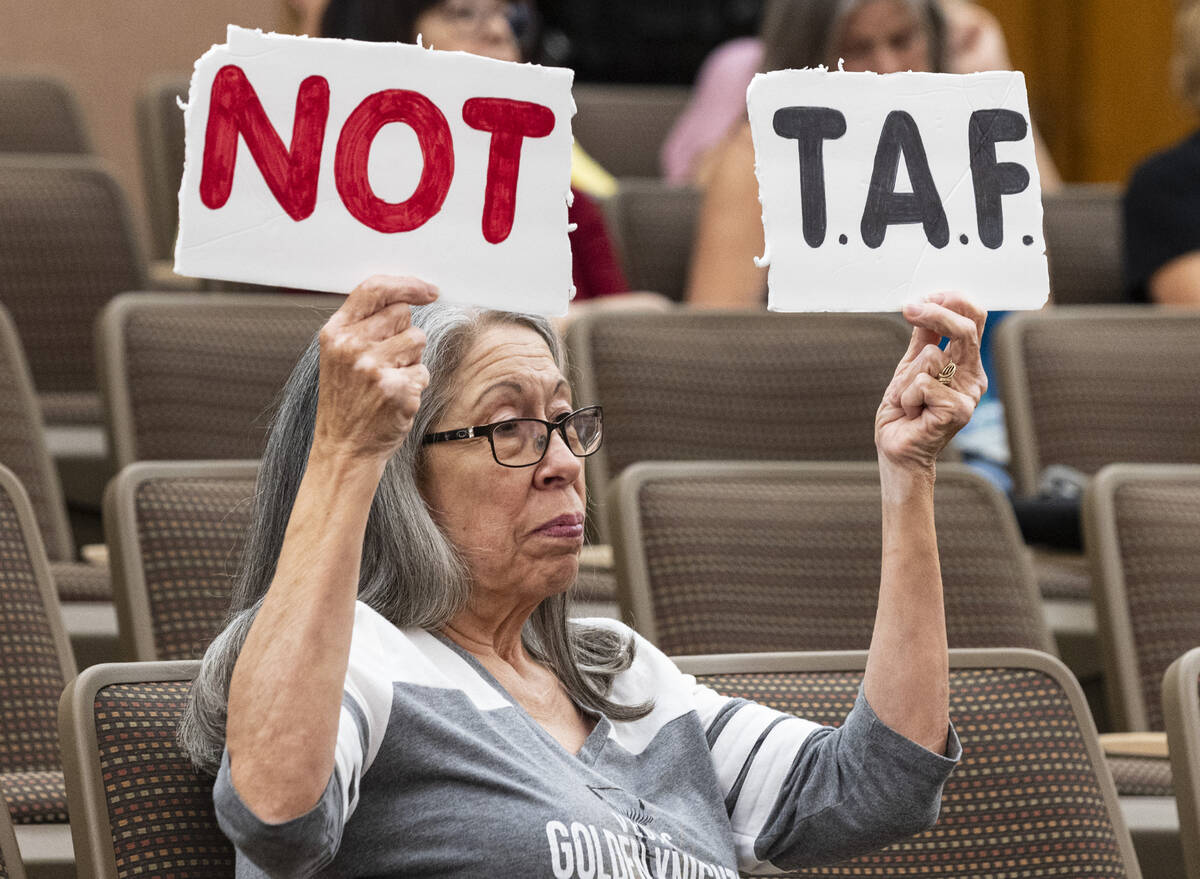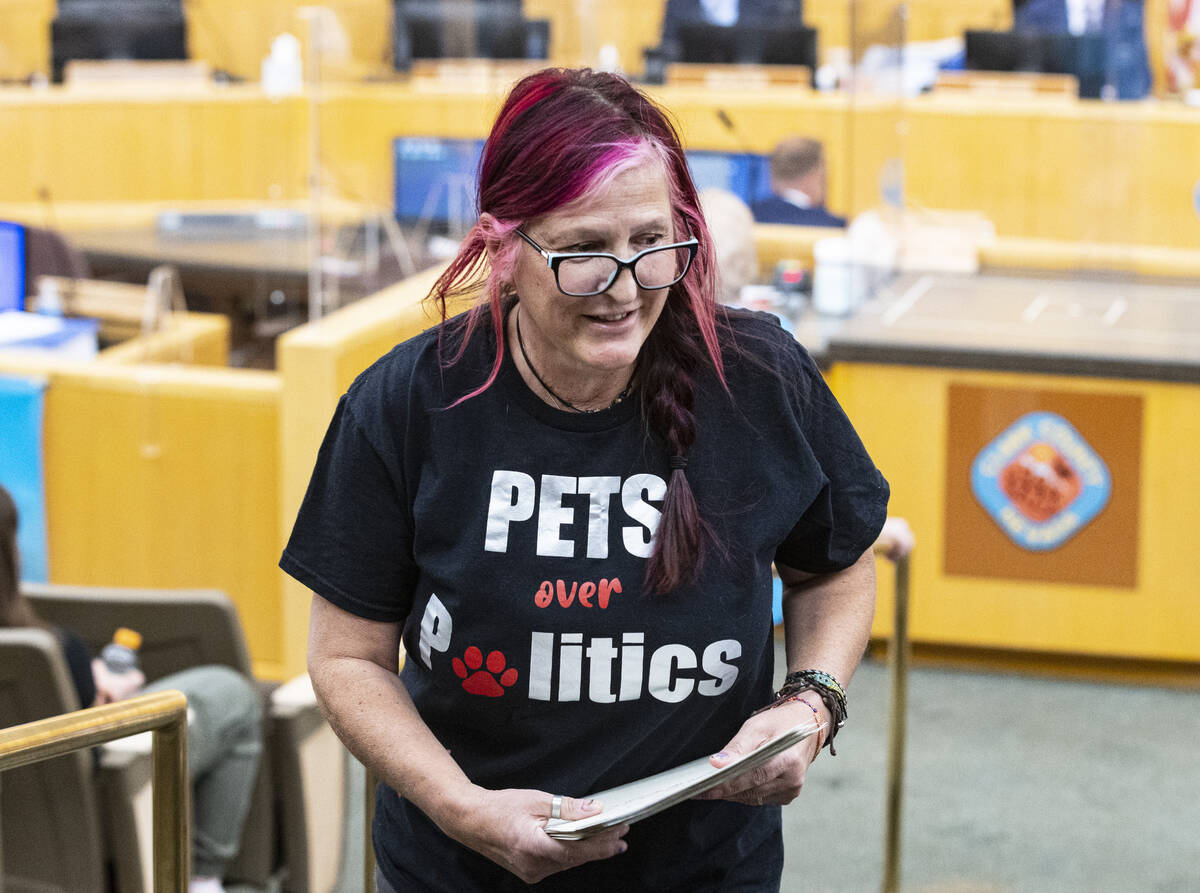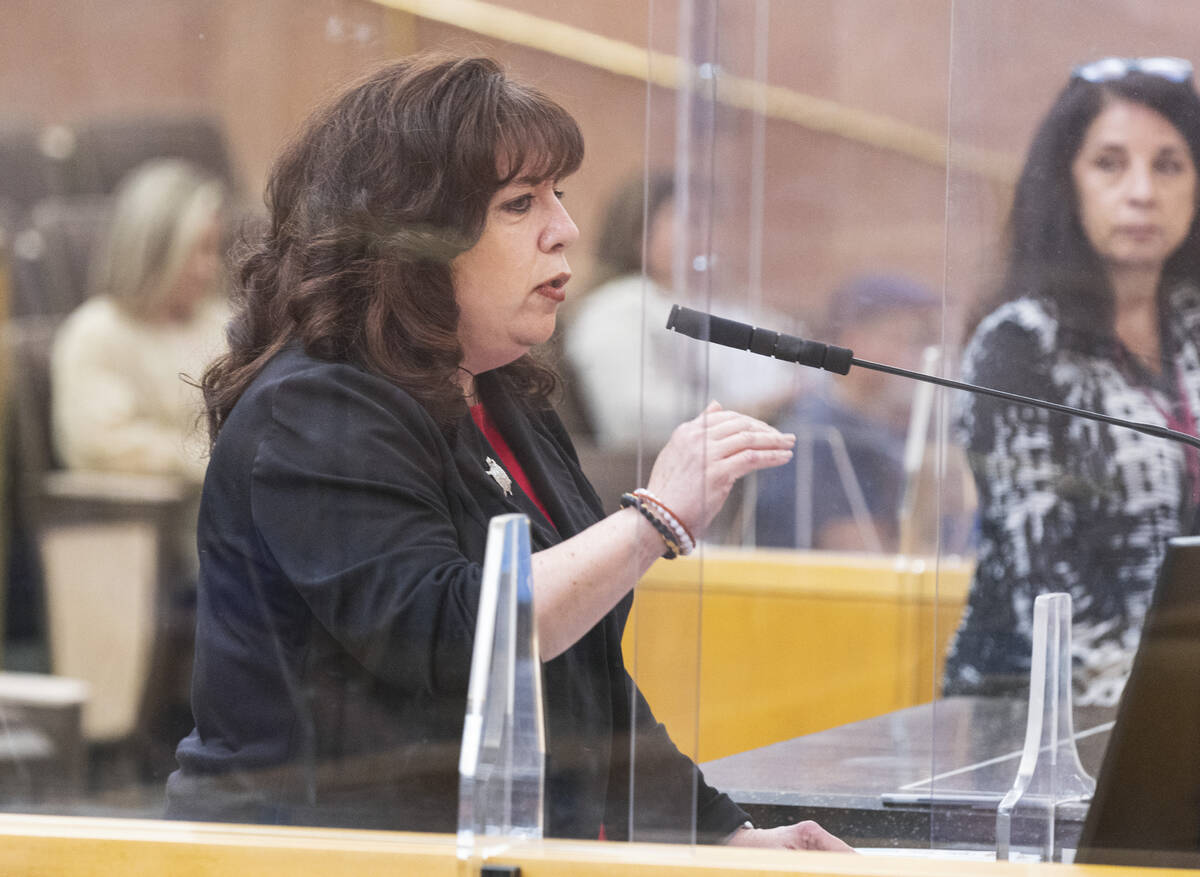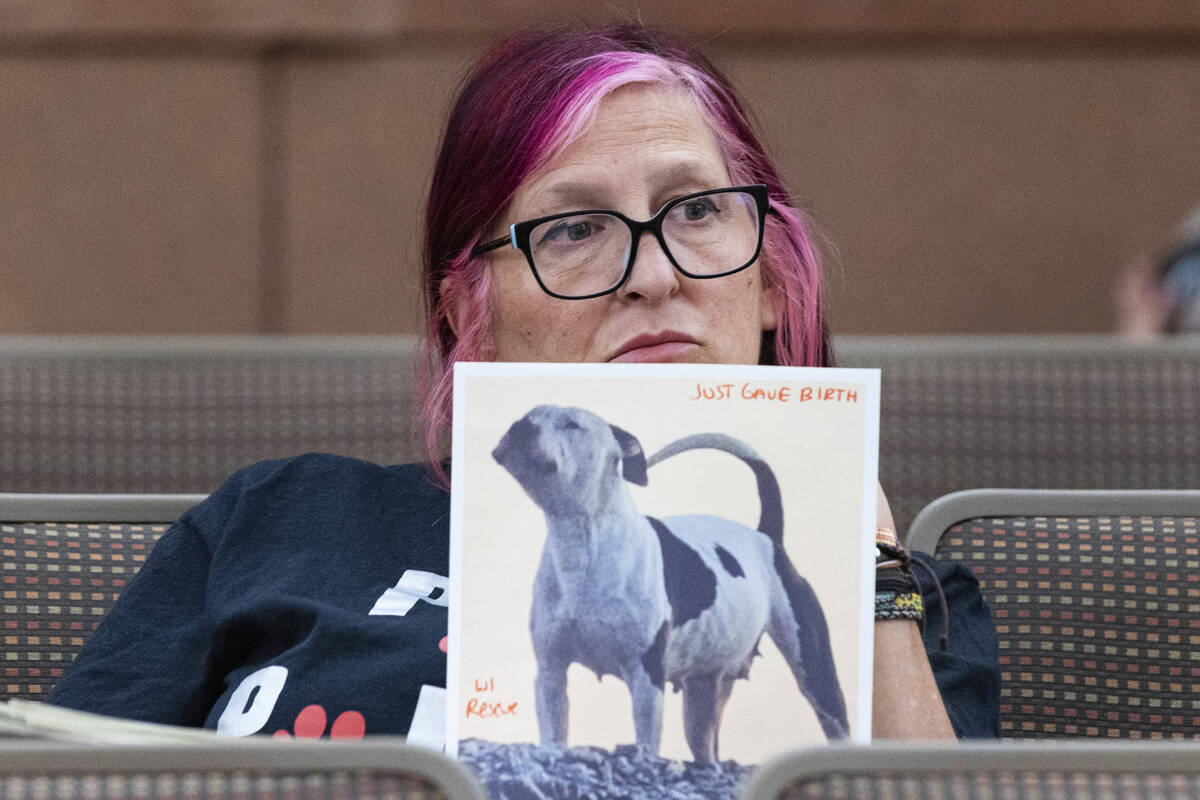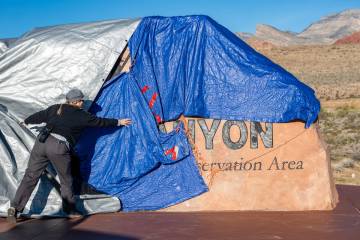Animal Foundation says call center would be a ‘game changer’
The embattled Animal Foundation on Tuesday pitched Clark County commissioners on a call center proposal it says would improve its customer service, and therefore ease the shelter’s overpopulation crisis.
Clark County, the city of Las Vegas and North Las Vegas provide about $5 million a year for law-mandated shelter services. The county funds about 43 percent of those tax dollars.
If approved, staffing the shelter and hiring six additional full-time employees would cost the municipalities an additional $535,000 a year.
That’s on top of an annual $50,000 the local governments have proposed for veterinary services, according to the foundation, which also asked for a one-time pledge of $20,000 for office modifications and information systems.
“We are sinking and we have to do something as quickly as possible,” said Commission Chair Jim Gibson, referencing the shelter that’s been saddled with increased animal intakes, a hike in euthanasia rates and staff dissatisfaction.
Reducing appointment wait times
The call center, based on a model used in Tucson, Ariz., which has a similar shelter animal population, would replace the current self-service appointment system the shelter uses, which “hasn’t been working,” said Hilarie Grey, the nonprofit’s CEO.
“It’s not proactive; it’s passive,” she said.
The Pima County system, which would offer real-time pet support, has been a “game changer” there, Grey said.
Grey and Jim Andersen, the county’s code enforcement chief, reasoned that many pet owners don’t want to give up their animals and just require guidance, information or resources to change their minds — something that can be done with an expert on the other side of the phone.
“I do think a call center is a step in the right direction,” Andersen said. “I think we would see a reduction.”
The foundation said that if the proposals were approved soon, it could reduce appointment wait times to 72 hours by the end of August, reduce owner surrenders by 30 percent by the end of the year, and increase shelter returns to owners by 10 percent by the end of 2023.
Grey said the foundation’s staffing numbers have improved and that it’s only short of veterinary assistants. Tax dollars make up about one-third of the foundations overall budget.
But Commissioner Marilyn Kirkpatrick expressed skepticism with the figures.
“How are we supposed to be measuring these?” she asked at one point.
Grey said that the shelter took in 2,734 owner-surrendered pets in 2022, and that reducing that number by a third would make a big difference.
“Everything that we’ve had presented to us is going to help us some, but there’s a whole lot more to it,” Gibson said.
He instructed staff to help prepare a concrete proposal for funding consideration at an upcoming meeting.
One by one, animal advocates in stepped up during public comment to decry the foundation’s practices and outline the crisis they say they see in the streets with injured or dead, abandoned pets.
The commissioners have said they’re open to fund the independent rescue operations, but that they can’t let the Animal Foundation fail.
“Right now there’s no advantage of doing something that would close the Animal Foundation or shift the Animal Foundation activities to someone else,” Gibson said. “That would be disastrous for us.”
Contact Ricardo Torres-Cortez at rtorres@reviewjournal.com. Follow @rickytwrites on Twitter.



